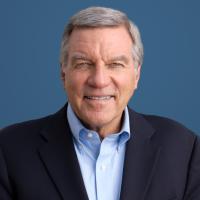Netanyahu Calls Antisemitism a Global Disease as US Battles Houthi Missile Threats
JERUSALEM, Israel – Israeli Prime Minister Benjamin Netanyahu on Thursday called antisemitism a global "disease" affecting the world, including on U.S. campuses, which Congress is working to combat. The U.S. is also targeting the Iranian-backed Houthis in Yemen as they continue launching missiles at Israel.
Israelis ran for cover Thursday afternoon as two more missiles were fired from Yemen in the middle of the day, targeting Jerusalem and central Israel. Interceptors shot both of them down.
The U.S. continues to urge Israel not to strike back at the Houthis, instead allowing American forces to respond. For two weeks, the U.S. has been carrying out air and missile strikes against the Iranian-backed group to stop attacks on Israel and on global shipping passing through the Red Sea.
President Donald Trump weighed in from the Oval Office, remarking, "The Houthis have been horrible to the world, what they’ve done, killed a lot of people. They’ve knocked down a lot of ships and planes.”
Trump continued, "The (U.S.) attacks have been very successful, even beyond our wildest expectations. We’ve hit them very hard, very successfully and we’re going to do it for a long time."
Meanwhile, at an international antisemitism conference in Jerusalem, Prime Minister Netanyahu thanked those who came to stand against what he called “barbarism.” "I say barbarism because antisemitism is a disease carried by barbarians that threaten all civilized societies,” the prime minister stated.
He emphasized that the danger extends far beyond Israel's borders. "These anti-Semites wish to destroy not only the Jewish state,” he said. “They seek to destroy the forces of modernity in the Arab and Muslim world. They seek to drag it back to a primitive and violent medievalism."
He warned the fires of antisemitism are spreading rapidly. "They rage in Europe's capitals, in the Western press and social media. They rage in America's elite universities."
One Turkish student at Tufts University in Massachusetts has been arrested by ICE for alleged pro-Hamas activities. Secretary of State Marco Rubio explained why Rumeysa Ozturk’s visa was revoked, and why others may be, too.
"We gave you a visa to come and study and get a degree; not to become a social activist that tears up our university campuses,” Rubio declared. “And if we've given you a visa and you decide to do that, we're going to take it away. I encourage every country to do that."
He compared it to what anyone would do if a rude guest trashed your home.
"If you invite me into your home because I say I want to come to your house for dinner, and I go to your house and I start putting mud on your couch and spray-painting your kitchen, I bet you're going to kick me out. Well, we're going to do the same thing if you come into the United States as a visitor and create a ruckus for us. We don't want it. We don't want it in our country. Go back and do it in your country,” he said.
Antisemitic incidents on U.S. campuses have spiked 500 percent since October 7th. Now, Congress is stepping in to help fight it.
Senator Bill Cassidy (R-Louisiana) noted, "Universities have been put on notice. Failing to protect students' civil rights will no longer be tolerated. If universities refuse to follow the law, to address discrimination on campuses, and to support Jewish students, then they should not expect support from the federal taxpayer."
A recent survey found 83 percent of Jewish college students have witnessed or experienced antisemitism on campus since the Hamas attacks on October 7th.





